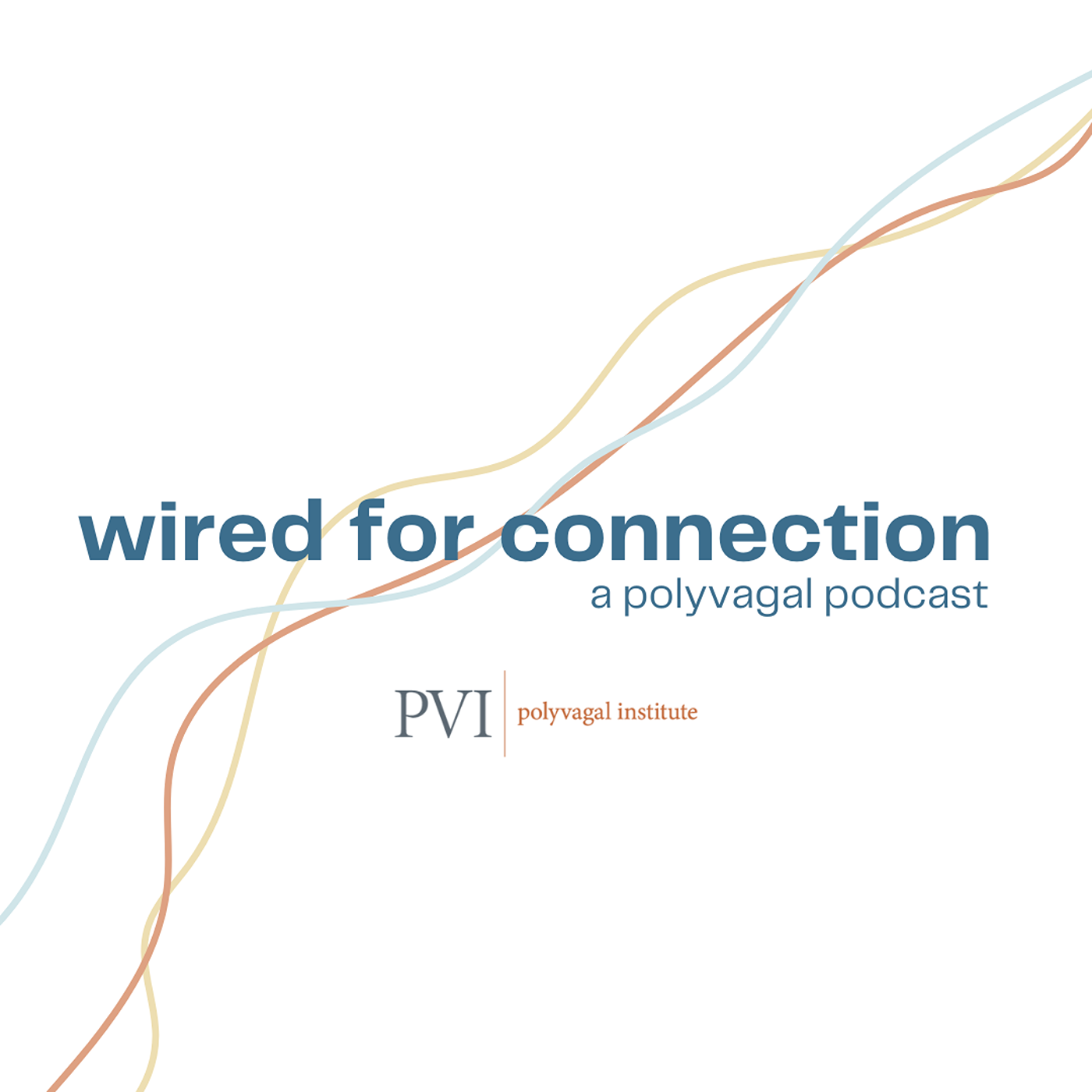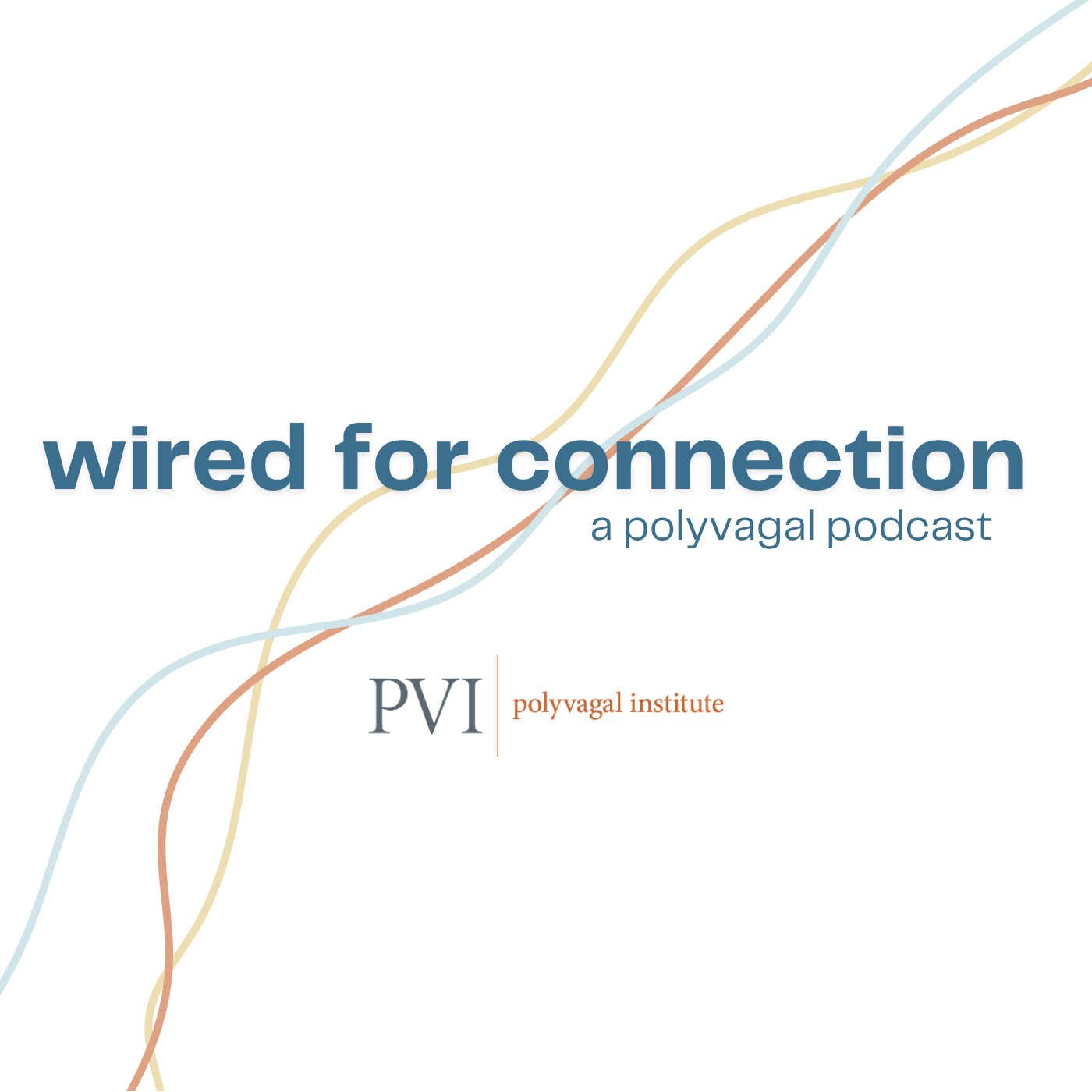Wired for Connection: A Polyvagal Podcast

Wired for Connection: A Polyvagal Podcast
Podcast Description
Wired for Connection is a podcast devoted to sharing information about Polyvagal Theory and the vagus nerve, in service of our mission to optimize the human experience by creating a safe and connected world.We highlight guests who share more information on the role the vagus nerve plays in our mental and physical health, alongside stories about their experience with their nervous systems in navigating relatable human experiences.This podcast is hosted by Polyvagal Institute, an international non-profit organization. Learn more about PVI on our website at www.polyvagalinstitute.org.
Podcast Insights
Content Themes
The podcast focuses on Polyvagal Theory, including mental and physical health, co-regulation, and the impact of the vagus nerve on our lives, with episodes highlighting topics like the evolution of trauma therapy and community insights from the Polyvagal family, offering actionable strategies for personal and professional integration.

Wired for Connection is a podcast devoted to sharing information about Polyvagal Theory and the vagus nerve, in service of our mission to optimize the human experience by creating a safe and connected world.
We highlight guests who share more information on the role the vagus nerve plays in our mental and physical health, alongside stories about their experience with their nervous systems in navigating relatable human experiences.
This podcast is hosted by Polyvagal Institute, an international non-profit organization. Learn more about PVI on our website at www.polyvagalinstitute.org.
In the second part of our episode on performance with Michael Allison, we discuss performance in an athletic and physical context. Michael touches on some of the great athletes, teams, and coaches and highlights how they were (or were not) able to move in and out of different nervous system states depending on the task at hand.
We also discuss how this information can help inform goal-setting and achievement of any kind. By honing your ability to listen to your body, and shift your physiology, using what Michael calls Autonomic Agility, you can achieve the optimal nervous system state for performance.
Michael’s book on this topic is coming in 2027. You can enroll in Michael’s course with the Polyvagal Institute at several times throughout the year. Learn more about this course on our website.
CONNECT WITH POLYVAGAL INSTITUTE:
polyvagal.org
@PolyvagalInstitute on Social Media
MORE ON MICHAEL:
https://theplayzone.com/

Disclaimer
This podcast’s information is provided for general reference and was obtained from publicly accessible sources. The Podcast Collaborative neither produces nor verifies the content, accuracy, or suitability of this podcast. Views and opinions belong solely to the podcast creators and guests.
For a complete disclaimer, please see our Full Disclaimer on the archive page. The Podcast Collaborative bears no responsibility for the podcast’s themes, language, or overall content. Listener discretion is advised. Read our Terms of Use and Privacy Policy for more details.